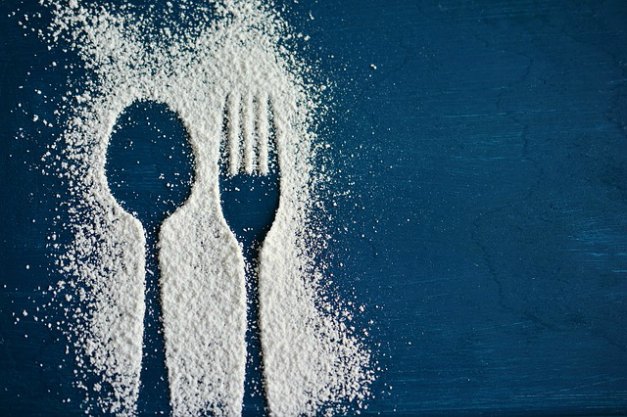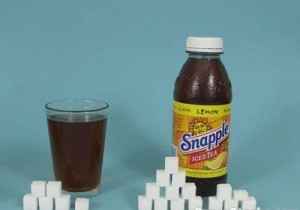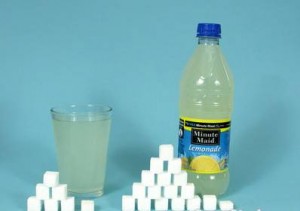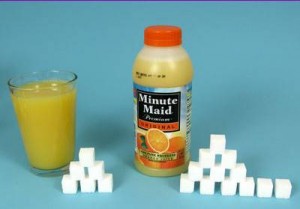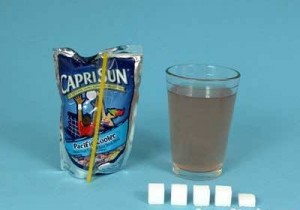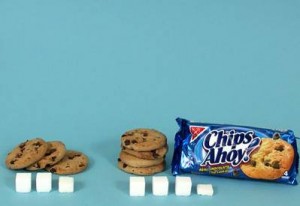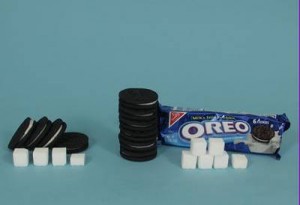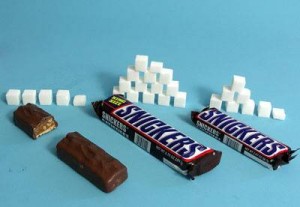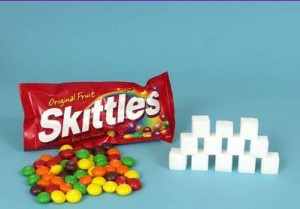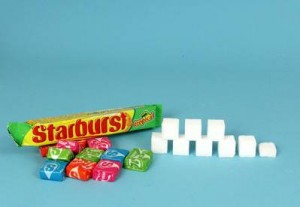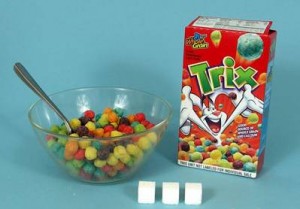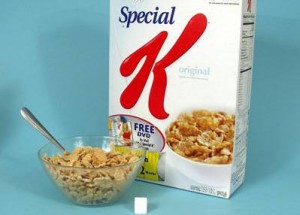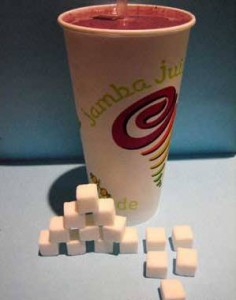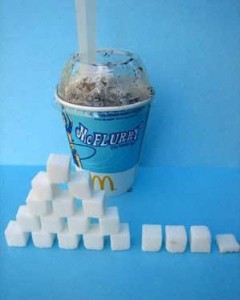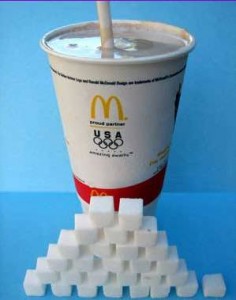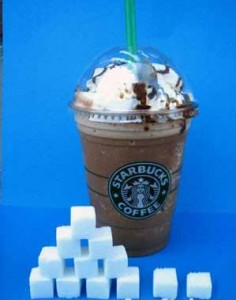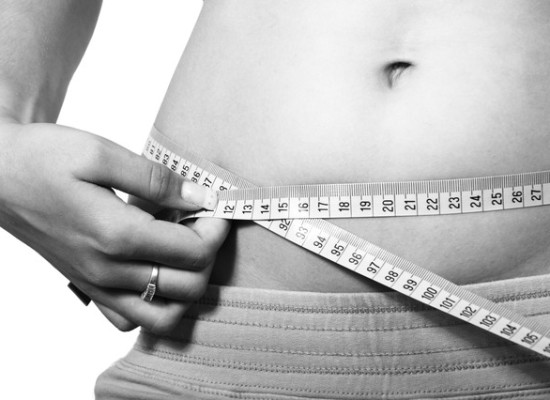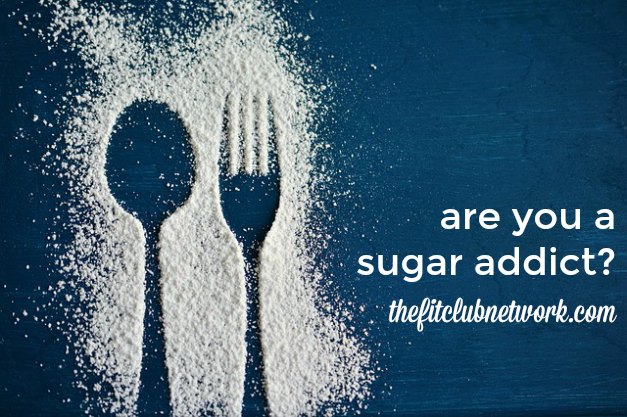
Are You Addicted to Sugar?
Get educated and break the addiction!
When you finish a meal, do you go searching for something sweet? Or, when you want to reward yourself for a job well done, do you reward yourself with a sugary treat? If so, you’re not alone—but you’re very likely addicted to sugar. There are many people who started with a sweet tooth and progressed to an honest-to-goodness addiction and cannot function without sweetness in their diets.
Eye Opening Facts About Sugar
In its raw and pure form, sugar is just juice from a cane plant. It gets really bad is when it’s refined—when manufacturers turn it into a bleached crystal with all the enzymes, vitamins and minerals removed.
Here are some shocking statistics for you:
The average American consumes 142 pounds of sugar per year. Yes, you read that right. That’s like a full grown person’s weight in sugar. It’s not just here in America either—diabetes is affecting a staggering 245 million around the world.
A 12 oz coke has 39 grams of sugar.
Mountain Dew has 46 grams.
Thinking about a Sprite or 7 up instead? They have 38 and 39 grams of sugar, respectively.
Red Bull has 27 grams of sugar in it.
Check out the images below to get a visual idea of how much sugar is in some popular foods and beverages that we come across in our daily lives:
|
|
|
|
|
|
|
|
|
|
|
|
|
|
|
|
|
|
|
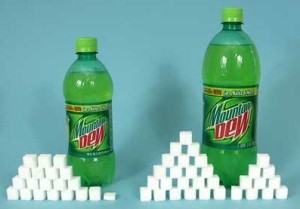 |
|
|
|
|
Does Sugar Make You Fat?
There is a great deal of conflicting information on the topic of what causes obesity. I believe Dr. Robert Lustig—a professor at the University of California, San Francisco—is onto something when he shares the bitter truth about sugar.
The corn industry runs actual media campaigns aimed at convincing people that the cause of obesity is not related to sugar, but rather due to the amount of food we eat.
Dr. Lustig is one of the major proponents behind the concept that fructose and high fructose corn syrup are to blame for obesity in America.
Here are a couple of videos with his thoughts on the issue. This first one is a piece that ABC News did on him with a short and, unfortunately, incomplete review of his theory. Its a good starting point, but the science is really laid out in the second video so make sure you take the time to watch that.
This second video is about a 1-1/2 hour lecture that Dr. Lustig gave entitled “Sugar: The Bitter Truth.” It was presented at University of California, San Francisco, and goes in depth about Dr. Lustig’s research and theories on how we arrived at this obesity crisis.
It gets technical, but his lecture shows how fructose is fundamentally different from other sugars, such as glucose, and how these different chemicals are processed by the body.
His conclusion—”Fructose is a poison.” Watch and get educated to give yourself a fighting chance of no longer being addicted to sugar.
Dr. Lustig’s bottom line—sugar is making humans distracted and fat, it affects their livers, and is even linked to Alzheimer’s disease. It is making our children obese, diabetic, and distracted. This mass consumption of the sweet crystals is causing a global epidemic of health conditions.
So, now you have Dr. Lustig’s thoughts. It’s time for mine.
I wholeheartedly agree. I believe that excess sugar intake is the primary culprit in the obesity of this country and way too many people are addicted to sugar.
It’s in nearly every processed food we eat—just check the nutrition facts the next time you are at the store. Seriously. Make an effort to look at what’s in the foods you are buying. You’ll be stunned to see how sugar—specifically fructose and its not-too-distant cousin, high fructose corn syrup—are added to foods that you would never assume required sugar.
Sure it’s in candy, soda, cookies, cereal and ice cream—but, did you know that it’s also hiding in places like spaghetti sauce, breads, and bottled salad dressings??? (Here’s a great article from Mark’s Daily Apple with more info on high fructose corn syrup—8 ‘Health’ Foods That Contain High Fructose Corn Syrup!)
Sugar is everywhere in the U.S. and that’s why many of us are addicted to it. I know this because of the mountain of evidence, including Dr. Lustig’s, and because I was addicted to sugar myself.
My Sugar Addiction
In January 2007, I decided to learn about nutrition as a way to change my life. One of the first things I did was cut out soft drinks and candy. (I’m sure my assistant thought she was helping me by keeping a well-stocked candy dish).
The first month was awful. I felt horrible, except when I would sneak a Mountain Dew, which made me keenly aware that there was something in there that my body deeply craved and there was no question I was addicted to sugar.
What’s more, things like vegetables weren’t appealing to me at all. I refused to eat raw or cooked vegetables. They just tasted like crap to me back then. After a few months without sugar, I started enjoying them more. I actually began to crave them once I was no longer addicted to sugar.
And, guess what? I lost a lot of weight.
At that time, I was packing around about 195 pounds. Today, I’m at 160. In fact, I’ve been 160 since I started significantly limiting my intake of sugar and other carbohydrates. Why? Because it works. It’s why I primarily follow the Primal Blueprint and focus not only on the amount of carbs, but the type of carbs I eat.
How to Beat a Sugar Addiction
Let’s face it, it’s hard to stop being addicted to sugar unless you make a concerted effort. We’re constantly bombarded with advertising for sugar-filled foods and they’re way too available in our schools and public places. (I dream of the day our vending machines get a total overhaul.) The fact is that manufacturers have gotten people so addicted to it that now the people demand it in their foods.
So how do you stop being addicted to sugar? Here are some tips to get you started:
- Eat single ingredient foods. The most effective way is to start eating and making your meals with whole single ingredient foods. When YOU are buying and cooking the ingredients, YOU know exactly what is in your meals—and there will be no sugar, either by design or lurking, right? (By the way, if you think eating like this means you’ll be spending more money on food, read our tips for eating healthy on a budget and think again.)
- Read nutrition labels. Sugar has many names, including but not limited to, sugar, high-fructose corn syrup, fructose, or sucrose. Watch foods labeled as “nonfat” or “low fat” as they often include added sugar to make up for their lower fat content. Remember, not all fat is bad so you don’t need to be fearful of all “fatty” foods. And, just because a manufacturer uses a trendy catch phrase, doesn’t mean something is actually healthy for you.
- Use healthier sugar alternatives. If you can’t go cold turkey or you need to use sugar in a favorite recipe, consider replacing the sugar with a healthier sugar alternative, like honey, agave nectar, evaporated cane juice, maple syrup, molasses, applesauce, or stevia. Applesauce is one of my personal favorites because of its natural sweetness and extra fiber. Two important things here—first, note I said “healthier” not “healthy.” These are still sugars, so they must be used in moderation. Second, if you think the “diet” or “sugar-free” versions of your favorite sugar foods are any better, you’d be very mistaken. Diet soda is absolutely horrible for you and most definitely contributes to weight gain (click on this link to learn more.)
- Eat naturally sweet foods. Instead of reaching for cookies, ice cream or candy, eat foods that are high in natural sugars—like carrots, beets, fruits, pureed pumpkin, and sweet potatoes to satisfy your craving. As you cut down or eliminate refined sugar, you’ll find these natural foods can really do the job.
- Make your own desserts. There are times when desserts are called for, but you don’t have to make sugary cookies or sinful desserts. You can make your own ice cream with far less sugar, make a lighter cake using applesauce as the sweetener, or make desserts from fresh fruit rather than refined sugar.
- Use spices to add flavor. Spice things up with cinnamon, nutmeg and even coriander to boost taste without adding calories. I love apple pie and pumpkin pie spice on plain yogurt!
- Drink lots of water. Sometimes craving sweets is a byproduct of dehydration. Drinking more water is ALWAYS good for you! Adding fresh herbs and fruit or essential oils to your water can give you just enough sweetness to keep you satisfied.
- Retrain your brain. Teach your brain to get pleasure from healthier alternatives—like non-edible treats or the endorphins you get from exercising or hugging your sweetie.
It can be difficult when you start to wean yourself off sugar, but I can tell you from experience, it gets way easier after about a week. Slowly, but surely, you’ll begin to enjoy the natural sugars in fruits and veggies and the thought of a piece of cake or a big bowl of ice cream won’t be so appealing.
And, you’ll feel so much better—most people coming down from being addicted to sugar say their thinking becomes clearer, they have more energy, they sleep better, and they lose some of those extra pounds.
So, I challenge you do something about being addicted to sugar—give it up and see if you don’t feel better. The steps above are a START of a new and healthier lifestyle that must include exercise as well.
Do You Want Help?
The bottom line is that YOU have to take personal responsibility for your own addiction and do the work to stop being addicted to sugar. I can help you.
You’ve heard it before—it takes 21 days to create a habit so be patient!
I invite you to sign up for a FREE Team Beachbody account, assign us as your (free) coach, join one or both of our private Facebook groups, and start doing the work to stop being addicted to sugar with the support of a like-minded and healthy community. Click below to get started NOW:

